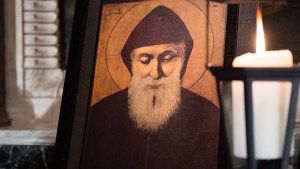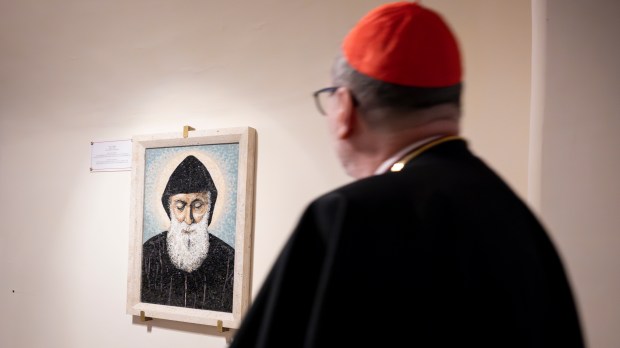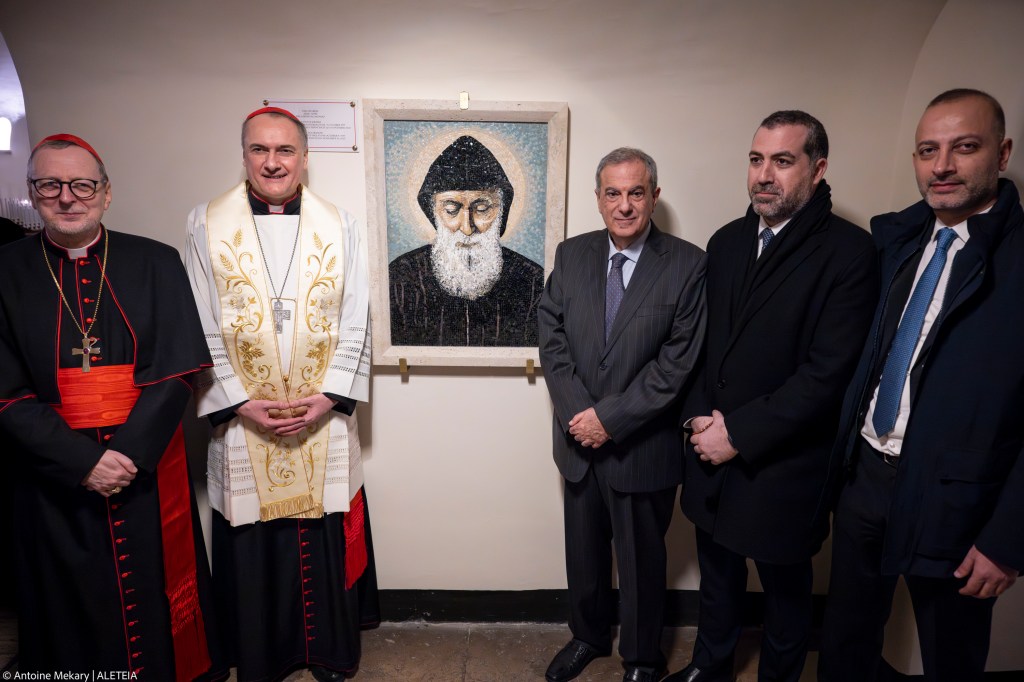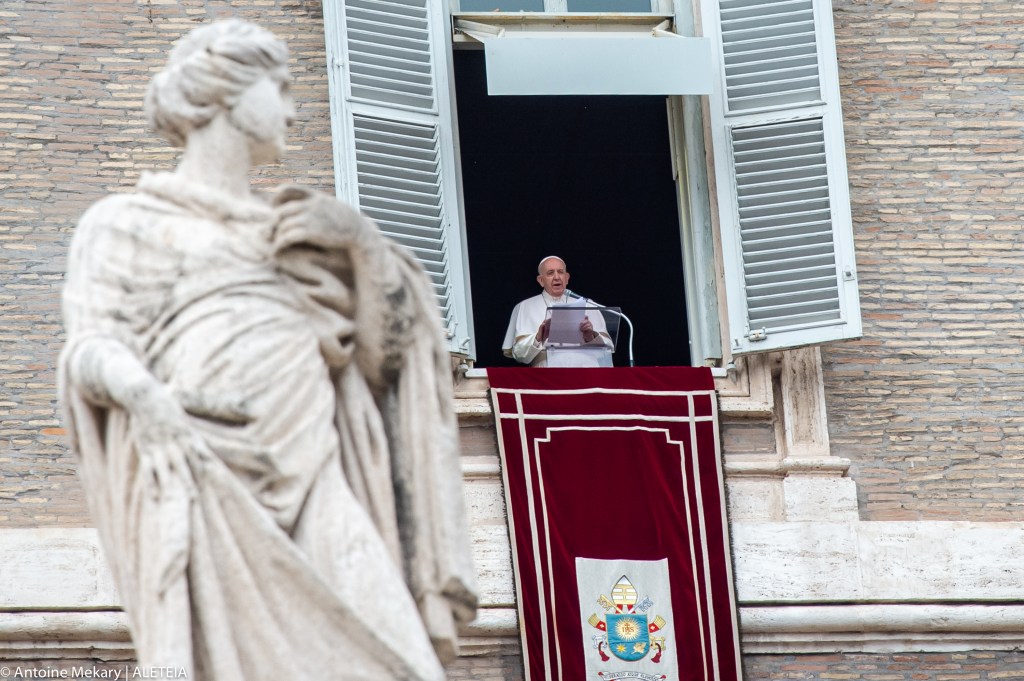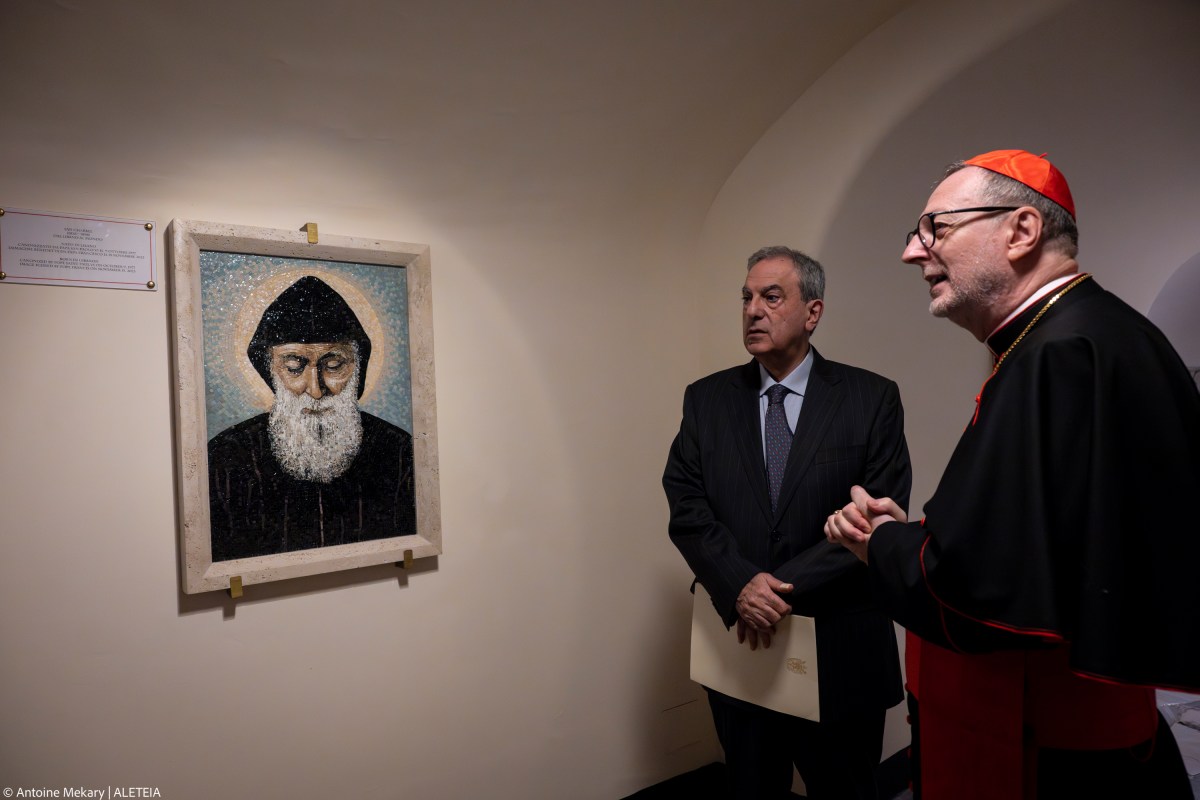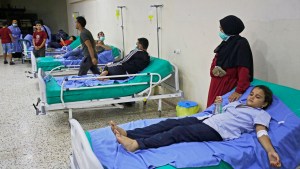On January 19, 2024, a new mosaic of St. Charbel Makhlouf was installed in the Vatican Grottoes, below St. Peter’s Basilica, next to the tombs of past popes and saints. This popular Lebanese hermit and saint will now have a special spot dedicated to him in the central Basilica of the Catholic Church.
The mosaic “is leaving a mark [in St. Peter’s Basilica] that will be appreciated by any person, whether Lebanese or not, who happens to know St. Charbel,” said Farid el Khazen, the Lebanese ambassador to the Holy See in an interview with Aleteia. “This could also be an incentive for people to strengthen their beliefs and to follow St. Charbel as much as possible.”
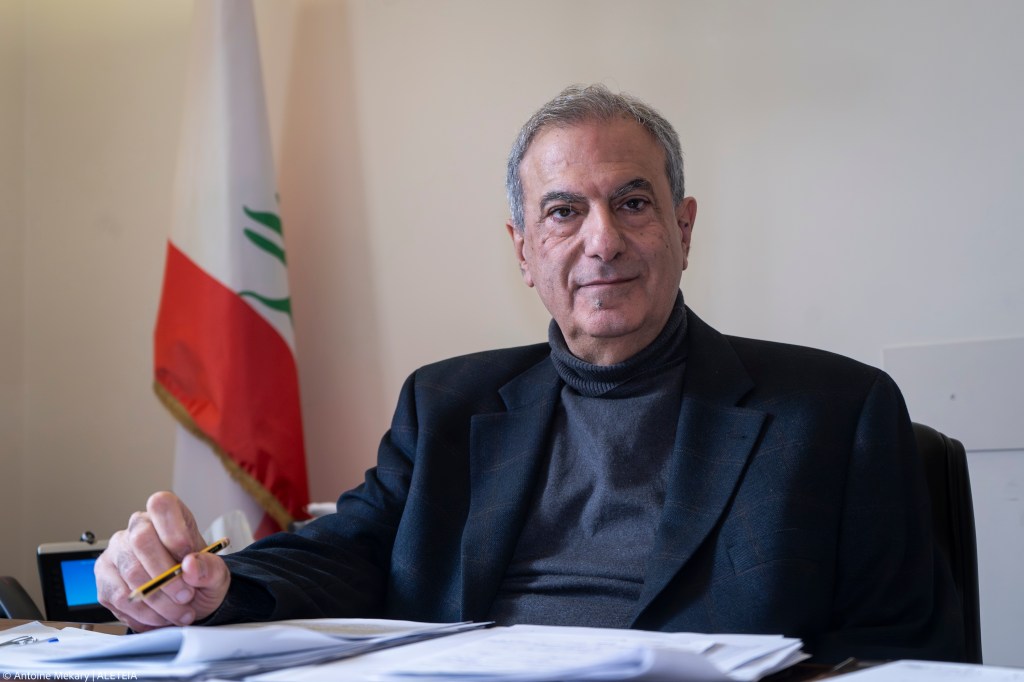
A mosaic blessed by Pope Francis
Cardinal Mauro Gambetti, Archpriest of St. Peter’s Basilica, and Cardinal Claudio Gugerotti, Prefect of the Dicastery for Eastern Churches, attended the installation ceremony of the mosaic, which included a prayer and a Mass. Several other priests and representatives of the Maronite and Lebanese community were also present, as well as the Lebanese Ambassador to the Holy See.
On November 15, 2023, during the general audience, Pope Francis blessed the mosaic, which was created by the Fabric of St. Peter, an organization that focuses on the maintenance and preservation of the Church. “When he came and blessed the mosaic he seemed quite enthusiastic, happy and welcoming,” said Farid el Khazen. The Pope has known “of St. Charbel since he was a bishop in Argentina.”
The idea to have a mosaic of St. Charbel in the Basilica began in 2019, but had to be interrupted due to the COVID-19 pandemic, Farid el Khazen explained. A similar mosaic had been installed in the Vatican Grottoes in 2013, depicting Filipino Saint, Pedro Calungsod.
The popularity of St. Charbel
The installation of the mosaic is also a “personal commitment,” said Farid el Khazen. “It is a way to honor, to show respect, [to have this in] the Basilica, which has its own importance and significance,” he explained.
“St. Charbel is well known outside Lebanon, in over 20 countries there are around 40 to 45 churches and monasteries named after him,” said Farid el Khazen, underlining also the various miracles that are attributed to the saint.
In Rome there is for example a monastery named after St. Charbel, which is also a meeting place for the Maronite community. Local news outlets in Lebanon, such as This is Beirut, reported that the bells of the Maronite churches rang in honor of the installation of the mosaic.
St. Charbel was born in 1828 in Lebanon and was raised in a poor shepherd family. As he grew older, he was attracted to the hermit’s life of the desert and eventually entered the Monastery of St. Maron in Annaya, before living in a hermitage. He died on Christmas Eve at the age of 70 and was beatified in 1965, then canonized in 1977, both by Pope Paul VI. In fact, Farid el Kazen explained that St. Charbel’s mosaic was placed on a wall behind St. Paul VI’s tomb.
Pope Francis’ constant appeals for Lebanon
Throughout his pontificate Pope Francis has often made appeals for Lebanon, as the state has been through several political, social, and economic crises and has been most recently affected by the conflict in Gaza. “To all the parties involved I renew my appeal for a cease-fire on every front, including Lebanon, and the immediate liberation of all the hostages held in Gaza,” the Pope said in his speech to the diplomatic corps accredited to the Holy See on January 8, 2024.
The Pope also remembered the Lebanese people last summer, in light of the third anniversary of the explosion in the Beirut port, which killed more than 200 people in 2020. “I renew my prayer for the victims and their families, who are seeking truth and justice, and I hope that Lebanon’s complex crisis may find a solution worthy of the history and values of that people,” the Pope said during the Sunday Angelus on July 30, 2023.
A papal trip to Lebanon had also been mentioned in the media in 2022 but did not end up occurring.
The Vatican organized a Day of Prayer and Reflection for Lebanon on July 1, 2021. During this event the Pope described Lebanon as a “country very close to [his] heart.” It is seen as a country with a unique mission, being itself a “message.”
As Vatican News has noted, Pope John Paul II referred to Lebanon as “more than a country.” Lebanon, Pope John Paul II said, is a “message of fraternity – east and west.” Pope Francis has echoed this reflection.
